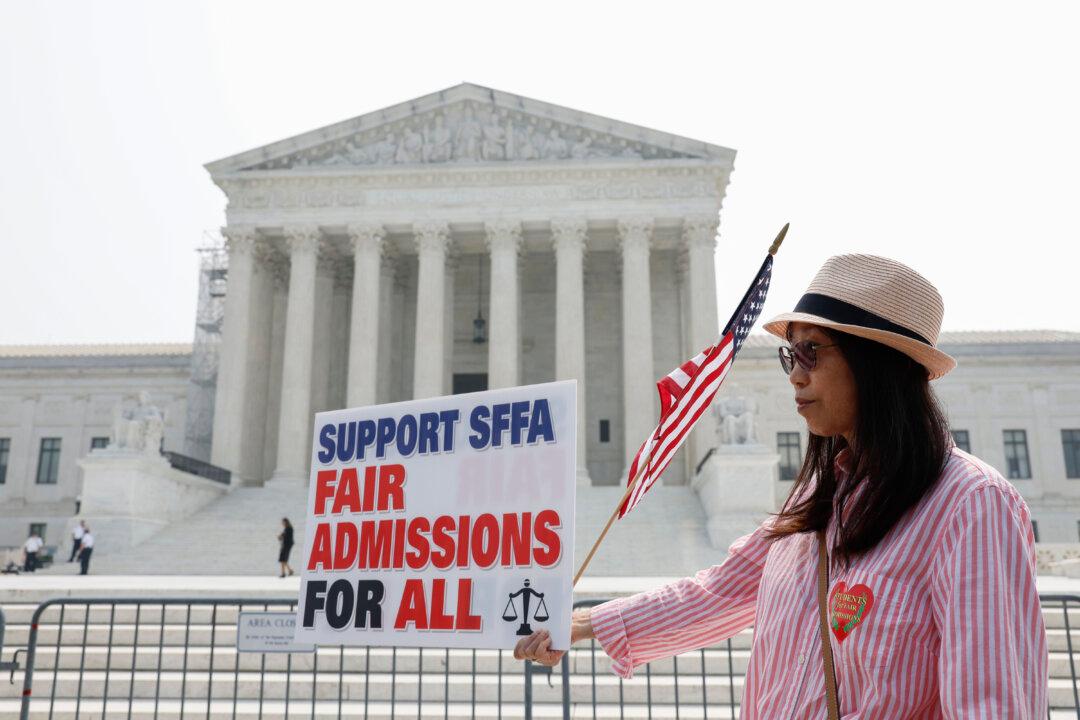The U.S. Supreme Court’s decision to strike down race-based admissions policies at U.S. colleges—known as affirmative action policies—was met with celebration as well as disappointment and defiance.
Prior to Thursday’s decision, the Supreme Court had allowed colleges to weigh an applicant’s race when making admissions decisions. In the 1978 case Regents of the University of California v. Bakke and the 2003 case Grutter v. Bollinger, the Supreme Court ruled that colleges could favor minority groups as long as they considered other factors beyond race specifically and did not implement racial quota systems.





